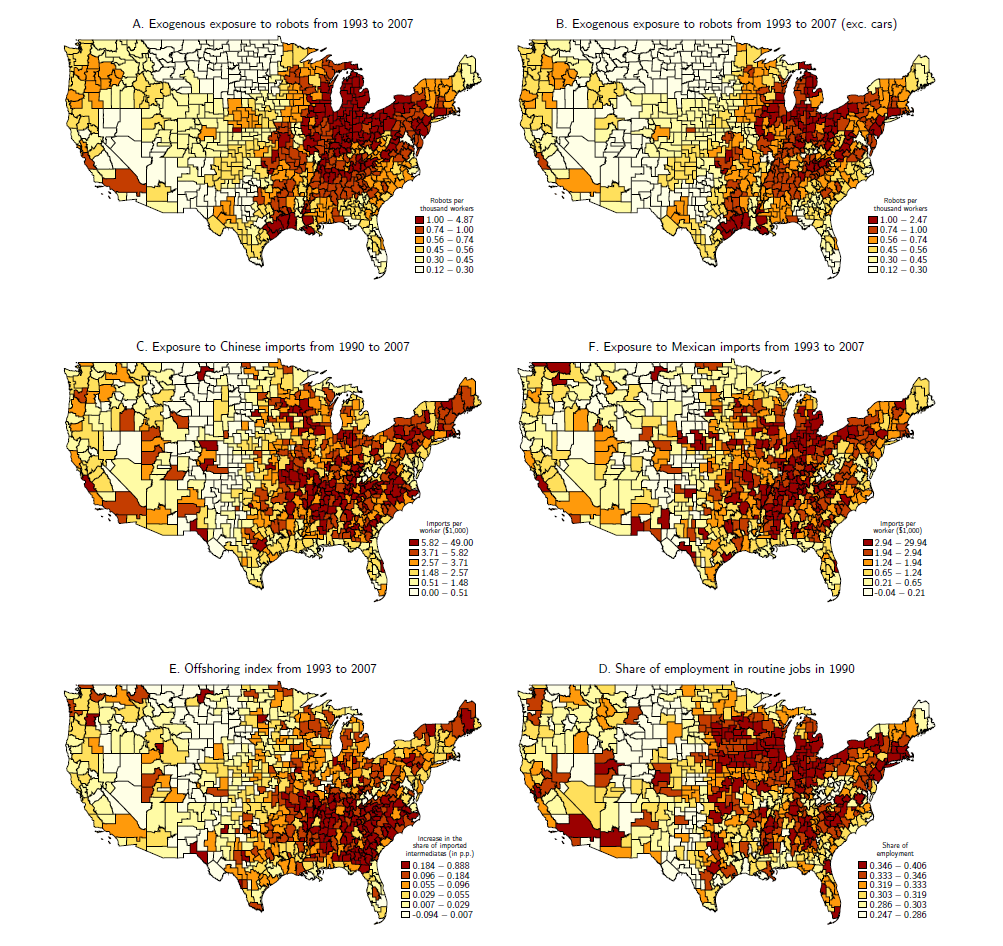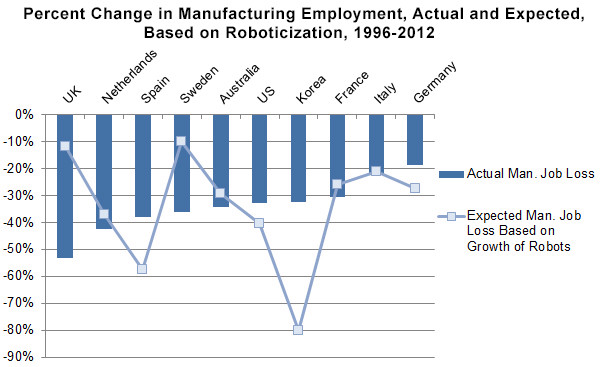It largely depends who you ask, even in the field. One more recent paper by Acemoglu and Restrepo (2017) that tried to quantify the loss:
In this paper, we estimate the impact of industrial robots on employment and wages in
the United States between 1990 and 2007 on US local labor markets. [they wanted to avoid the major recession]
Because there are relatively few robots in the US economy, the number of jobs lost due to
robots has been limited so far (ranging between 360,000 and 670,000 jobs, equivalent to a 0.18-
0.34 percentage point decline in the employment to population ratio).
This is a much lower percentage of the total loss of mfg jobs (far below half). What is interesting about this paper is that it tried to simultaneously account for a number of phenomena including imports, offshoring etc. and by US zone (a lot of these data comes from other papers though, not primary sources, so there's a potential for compounding of errors). Here's some eye candy from the paper

And on top of all that data, they used a model of trading zones to estimate the aggregate effect of robots.
There's also some comparative data from Andes and Murro (2015) from different countries suggesting that automation alone was a poor predictor of manufacturing job losses in most countries.
Yet the evidence suggests there is essentially no relationship between the change in manufacturing employment and robot use. Despite the installation of far more robots between 1993 and 2007, Germany lost just 19 percent of its manufacturing jobs between 1996 and 2012 compared to a 33 percent drop in the United States. (We introduce a three-year time lag to allow for robots to influence the labor market and continued with the most recent data, 2012). Korea, France, and Italy also lost fewer manufacturing jobs than the United States even as they introduced more industrial robots. On the other hand, countries like the United Kingdom and Australia invested less in robots but saw faster declines in their manufacturing sectors.

What all this suggests is that it's no easy task to estimate to what past job losses were due, never mind the huge variations in estimates for the future impact of automation.


